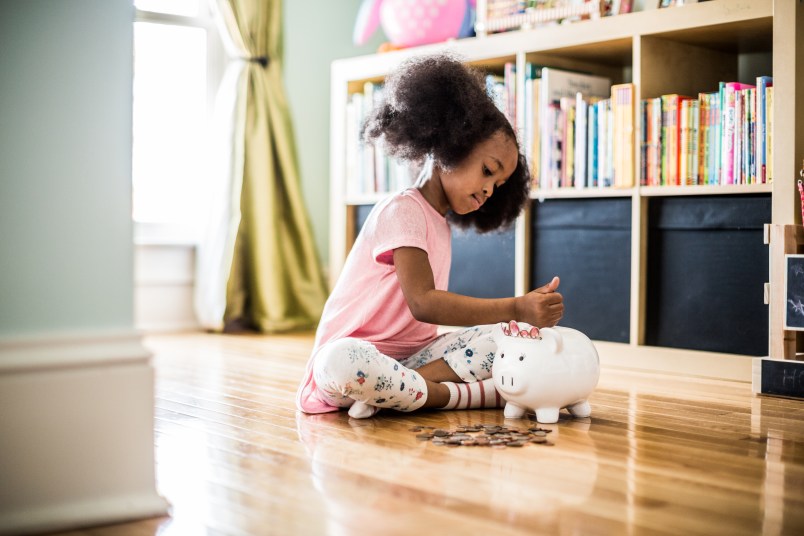7 Essential Money Conversations to Have With Your Kids

We teach our kids how to brush their teeth and wash their hands from an early age, but at what age should they begin to learn valuable lessons about money?
Kylie Macfarlane, Commonwealth Bank’s General Manager Corporate Responsibility, explains that it’s never too early to start teaching our little ones about financial responsibility: “Research has shown that our early experiences with, and conversations about, money can shape how we view and approach money management as adults.”
It’s a challenge to get little ones to sit still long enough to explain the finer details of pretty much anything, let alone financial wellbeing, so just like with food, it’s best to start with manageable bite-sized pieces.
“Kids absorb a lot from the actions of their parents. So remember to engage your kids in your own money management like having them help with the grocery shopping, paying bills, or explaining the savings goals you’ve set for yourself.”
The key is to make it fun to keep them interested.
“Generally, parents who teach their kids about money in a fun and engaging way can have a positive impact on their children’s financial knowledge, outcomes, and wellbeing when they grow up,” says Kylie. “As the mother of four-year-old twins, I started introducing concepts such as ‘needs’ and ‘wants’ from approximately three years of age.”
Here are a few ideas to get the conversation started.
Money is real and can be counted.
When you think about it, most young kids have grown up in a world of ‘invisible’ money — we shop online, do our banking online and pay our bills online. Rarely handling real money makes it harder for kids to appreciate how quickly it comes and goes. Bring money to life by withdrawing some cash and using it to shop when you’re out and about with the kids.
Money doesn’t grow on trees… or ATMs
Explain that we go to work to earn money, when we get paid the boss puts our money in the bank, and the bank gives us a special card so we can take out our money through the bank’s machine to pay for things.
Let them shop and pay the price.
Ask them to choose one or two of their favorite foods at the supermarket, and work out together how much they will cost. Then ask them to pick a cheaper version of the same product and work out how much money they’ve “saved.”
Want now buy later.
We live in a world of instant gratification but, sadly, this does little to teach our children the joys of working towards something. Use pocket money to teach your child the value of saving from a young age. Once they have saved up enough, take them to buy the toy or book they were saving for. Kids will never forget how good it feels to work towards a goal and be rewarded in the end.
Keep track or you’ll lose it.
Tracking your money is the foundation of financial wellbeing. Your child can start by logging pocket money or ‘earnings’ in a notebook. Ask your child’s school to look into CBA’s Start Smart, as a way to teach kids about good money management through interactive, engaging, and fun workshops and online resources.
Open their eyes to bills.
Paying bills online? Show them the amount on the bill and explain how many days/hours it took you to earn enough money to pay the bill. This will reinforce that the things they enjoy cost money that has to be earned. “Connected” kids will benefit from learning that the internet has to be paid for like any other utility.
A small dose of skepticism is healthy.
Occasionally point out that the marketing tricks used to make products alluring — to children, in particular, are just that… tricks. It’s a good way to ensure they don’t fall for everything they see advertised on TV.
This article originally appeared on our sister site, Now to Love.
















